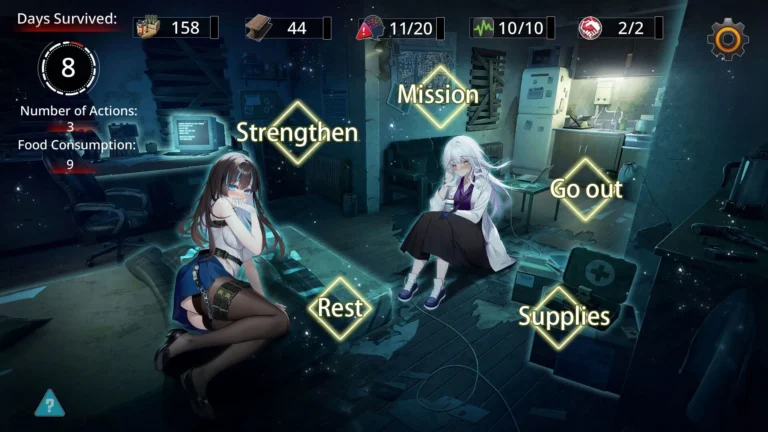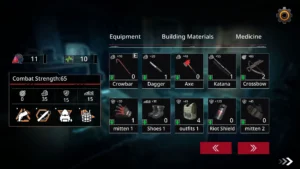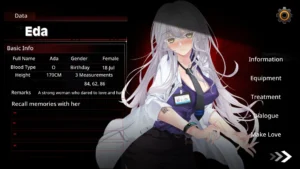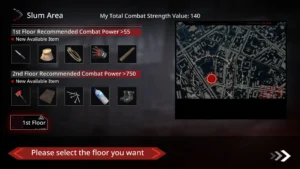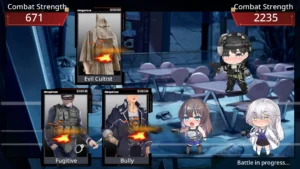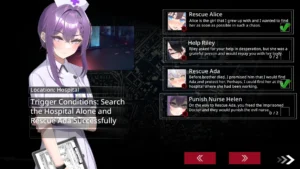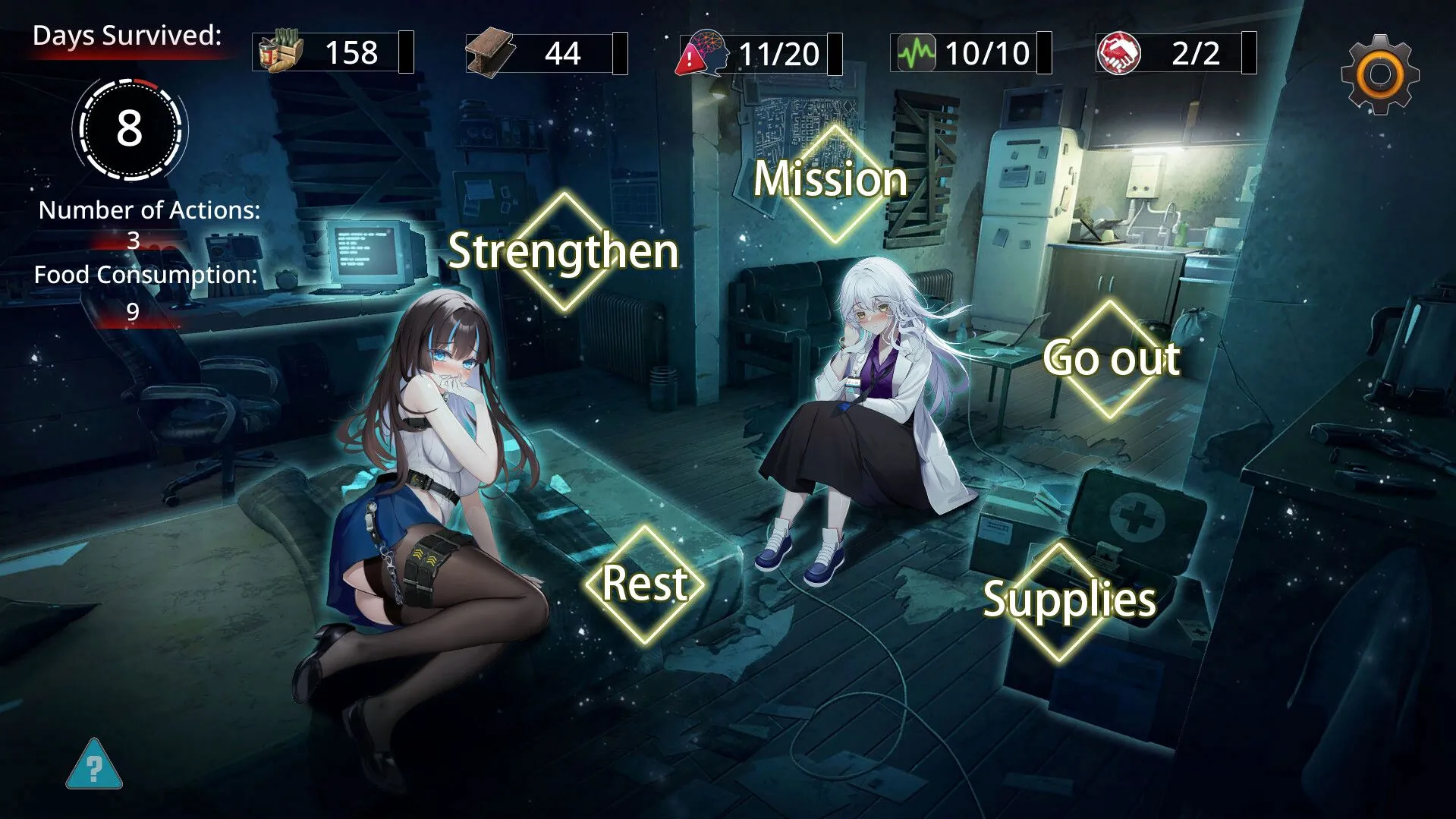
Fatal Countdown – immoral List of Desires review
A Deep Dive into the Mechanics and Morality of Immoral List of Desires
When I first encountered Fatal Countdown: Immoral List of Desires, I was struck by its bold approach to interactive storytelling. This narrative-driven experience challenges players with complex moral dilemmas through its unique choice-consequence system. Unlike traditional visual novels, it implements a time-pressure mechanic that forces rapid decision-making, creating intense emotional engagement. Our analysis focuses on gameplay innovation, character development, and community reception while maintaining appropriate content boundaries.
Gameplay Mechanics and Narrative Design
The Choice-Driven Progression System
Picture this: you’re staring at your screen, palms sweaty, as the game throws a decision-based narrative design curveball at you. Save your best friend from a burning building or stop a corporate heist that could bankrupt thousands. There’s no “right” answer—just your answer. That’s Fatal Countdown – Immoral List of Desires in a nutshell. 🕹️🔥
The game’s branching story paths aren’t just window dressing. Every choice ripples through the story like a stone tossed into a pond. For example, in Chapter 3, choosing to expose a character’s secret addiction might earn you their loyalty—or drive them to sabotage your plans later. Developer Mira Chen put it best: “We wanted players to feel the weight of their moral compass cracking under pressure.” 💔🎮
Here’s where it gets juicy: the Fatal Countdown gameplay mechanics track your decisions in a hidden “karma ledger.” Help too many people? The game might lock you out of ruthless but effective strategies. Play too selfishly? Allies start ghosting you. It’s like real-life consequences, but with better graphics. 😅
| Chapter | Minor Choice Impact | Major Choice Impact |
|---|---|---|
| Chapter 2: Broken Trust | Dialogue shifts | Lose/gain a faction ally |
| Chapter 5: Blood Money | Temporary stat boosts | Unlock/lock story endings |
| Chapter 7: Last Stand | Altered cutscenes | Character deaths |
Pro tip: Save scummers beware! Fatal Countdown autosaves after every big decision. No take-backsies. 😈
Time Pressure Mechanics Explained
Ever tried ordering coffee while someone shouts at you to hurry up? That’s the Fatal Countdown gameplay mechanics in action—except instead of caffeine, the stakes are life, death, and questionable ethics. ⏳💣
The game’s interface bombards you with ticking clocks, overlapping dialogue boxes, and NPCs who will side-eye you if you dawdle. During the “Hostage Highway” sequence, you’ve got 90 seconds to either negotiate with terrorists or ram their van off the road. Wait too long? The game chooses for you—and it’s never the option you’d pick. 🚨
Developers described this moral dilemma system as “controlled chaos.” Art director Liam Park revealed in a 2023 interview: “We tested how fast players could process guilt. Turns out, 8 seconds is the sweet spot for maximum existential crisis.” 😬
Here’s how to survive the pressure:
– Prioritize relationships: Characters you’ve bonded with wait longer before judging you.
– Scan options diagonally: Crucial choices are often buried in the middle.
– Embrace regret: Some of the best story twists come from “bad” decisions.
Character Arc Development Strategies
Let’s talk about Zoe—the ex-spy with a drinking problem and a killer smile. 🍸💋 Her character relationship system reacts to whether you enable her self-destruction or stage interventions. Do you hand her another whiskey to unlock her combat skills? Or confiscate her flask and risk her abandoning your team? There’s no cheat code for human connection.
Fatal Countdown gives three main development paths:
- The Redeemer: Sacrifice resources to fix broken allies. Unlocks hopeful endings but makes gameplay brutally hard.
- The Pragmatist: Use allies’ flaws against enemies. High short-term gains, but everyone betrays you in Act 3.
- The Catalyst: Push characters to rock bottom to “rebuild” them. Unlocks secret abilities… if they survive.
During my playthrough, I turned Zoe into a guilt-ridden vigilante. By Act 4, she’d become a damage-dealing machine—but refused to speak to my protagonist. Cue the awkward silences during missions. 🥀
“Players don’t realize they’re writing fanfiction about their own trauma,” writer Elena Vo joked. And honestly? She’s not wrong.
So, Should You Play This Moral Minefield?
If you’re tired of games where choices don’t matter, Fatal Countdown – Immoral List of Desires is your wake-up call. With its branching story paths that actually branch, decision-based narrative design that stings like a breakup, and character relationship system that’s messier than my last Tinder date? Yeah, it’s worth the emotional damage. 💔🎮
Just keep a stress ball nearby. You’ll need it. 😉
Fatal Countdown’s innovative approach to interactive storytelling sets new standards for ethical dilemma narratives in gaming. Through its carefully crafted decision systems and character development, the game challenges players to confront complex moral questions. For those interested in narrative-driven experiences that prioritize meaningful choices over superficial elements, this title offers substantial engagement. Join our community forum to share your gameplay experiences and moral decision-making strategies.
